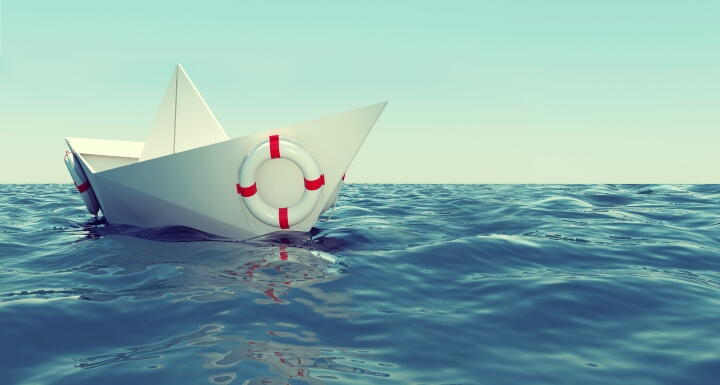The Law Related to Boating Accidents in North Carolina

North Carolina’s mild climate and natural beauty make it a great place for outdoor recreation.
Its coastline, rivers, and lakes make water-related activities particularly popular. North Carolinians and tourists alike enjoy boating, fishing, kayaking, jet skiing, and paddle-boarding, among other activities.
Unfortunately, sometimes injuries occur from boating or use of other personal watercraft. These injuries can sometimes be severe, sadly including drownings or other deaths.
When a boating accident occurs, there is often an issue of whether there is liability for boating injuries. This typically involves an examination into whether a party was “negligent,” and whether that negligence was a cause of the boating accident and resulting injury.
Liability
Under North Carolina’s civil law and that of other jurisdictions, everyone has a duty to act with reasonable care in all their actions. When operating a boat, this requires driving carefully, including at the appropriate speed. Most boating accidents involve some form of human error, such as operator inattention, speeding, unsafe turning, navigating incorrectly, or driving recklessly. North Carolina law also makes it illegal to operate a boat while intoxicated. The legal limit of 0.08% blood alcohol content applies to boat operators. Unfortunately, many accidents involving boats or watercraft involve excessive alcohol consumption.
The duty of reasonable care can require not operating a boat that one knows is unsafe, or that one reasonably should know is unsafe. Some accidents result from mechanical problems which, again, can result in a finding of negligence. Failure to have the proper safety equipment on a boat (including flotation devices) also can result in legal liability.
Damages
Once negligence is established, the negligent party typically is liable for any damages caused by the negligence. The aim of awarding damages is to make the injured person “whole” under the law. When dealing with serious personal injuries or death, however, the goal of “making whole” is impossible. Still, the civil legal system seeks to compensate the injured party or their family through the payment of money damages in an attempt to “balance the harms” incurred.
The negligent party or their insurance company, if applicable, is responsible for paying these damages. Like with other personal injuries, accidents involving boats, jet skis, or other watercraft may involve damages such as medical bills (past and future), lost wages, diminished future earning capacity, pain and suffering, scarring or disfigurement, loss of use of a body part, or the permanency associated with any continuing injuries. If the injured party passes away, a resulting wrongful death case considers many of these categories, as well as others, in assessing damages.
The Role of Federal Law
Boating accident cases are somewhat unique compared to other personal injury claims in North Carolina because federal law often applies. Federal maritime law applies to injuries that occur on navigable waters that are used or capable of being used for interstate of foreign commerce.
Navigable water isn’t limited to just the ocean, but also can include waterways and other bodies of water such as harbors, rivers, and lakes. Federal maritime law will apply to nearly all accidents in these cases—including those involving recreational boating. Maritime law even can apply to an injury that occurs on land if there is a sufficient nexus between the maritime activity and the on-land injury.
The application of federal law means that a personal injury lawsuit often is prosecuted in federal court, although not always. Regardless of the jurisdiction in which the case is tried, state or federal, these cases involve a lengthy history of case law and the application of other specific legal standards, making them more complicated than many other personal injury cases.
Different areas of federal maritime law also apply to other factual situations involving injury. For instance, the Jones Act allows sailors who are injured in the course of their employment to recover damages due from the action of inaction of the vessel owner, the captain, or other members of the crew, or due to the unseaworthiness of the vessel.
There can be different deadlines in maritime cases than the normal personal injury case. In addition, these cases often involve specialty insurance companies that may even be headquartered in different countries. These issues make it particularly important to consult with an attorney if you have a case involving injuries on the water.
In North Carolina, the application of federal maritime law has some benefits for injured parties and their families. Most North Carolina injury cases involve the potential defense of contributory negligence. Under the doctrine of contributory negligence, an injured party who contributed at all to the incident causing their injury—even 1%—typically is barred from recovering any damages whatsoever. Federal maritime law, on the other hand, applies “comparative fault” principles so that the injured party’s damages typically simply are reduced by the percentage that their own fault contributed to the incident.
Conclusion
When injury happens on a boat, jet-ski, kayak, paddleboard, or other watercraft as a result of another party’s negligence, our legal system imposes responsibility on that party. The injured person must turn to that negligent party, or that party’s insurance company, for compensation. These cases often are complex, including the possible application of federal maritime law. Involving an experienced, committed attorney will ensure that if you are injured in a water-related incident, you will have your rights protected and receive guidance through a difficult situation.
—
© 2023 Ward and Smith, P.A. For further information regarding the issues described above, please contact Jeremy M. Wilson.
This article is not intended to give, and should not be relied upon for, legal advice in any particular circumstance or fact situation. No action should be taken in reliance upon the information contained in this article without obtaining the advice of an attorney.
We are your established legal network with offices in Asheville, Greenville, New Bern, Raleigh, and Wilmington, NC.
Featured News
View All
